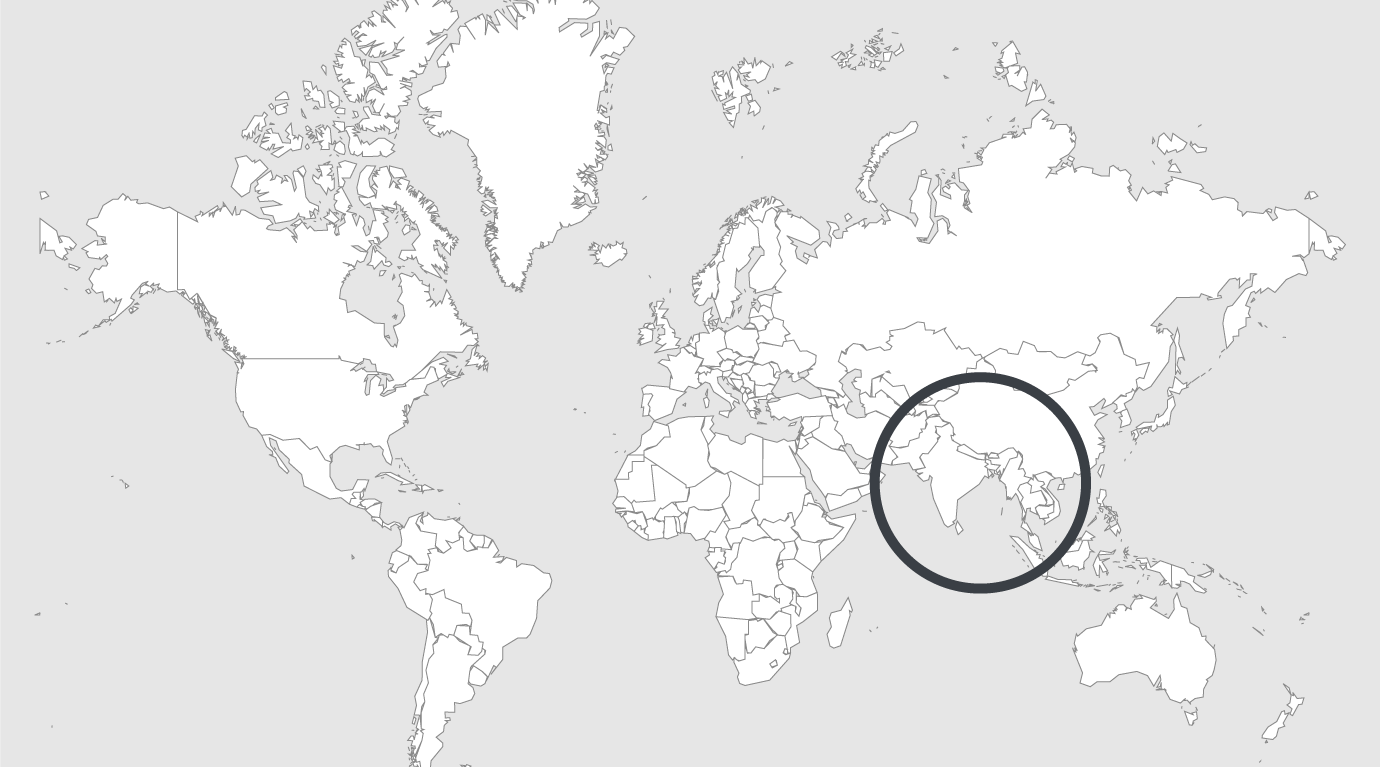
Explore
Pakistan: letters from death row; life after prison
Mazhar Farooq remembers being freed after two decades behind bars.
“After living 21 years in an eight-by-eight foot cell the world seems very strange. I could not even walk properly and would bump into things. Even a caged lion can’t walk when set free,” says the former inmate from Kasur, Pakistan.
He was just 22 years old and a university student when he was imprisoned. His father had been murdered and he was in line to inherit his family’s land. But before he could, he was implicated in the murder of a local man. There was no supporting evidence; he says his name replaced a suspect’s and the medical report was false. The murder weapon was also not his.
“In Pakistan, whoever is politically strong can exert influence. In jails, in court, everywhere. An ordinary person can’t do anything,” he says.
He was given the death penalty, and spent his adulthood on one of the largest death rows in the world, among an estimated 5,000 prisoners in line to be executed in Pakistan.
Farooq describes living in a small cell, crammed with up to 15 people. All activities - eating, praying, going to the toilet - happened inside the cell. The inmates were allowed outside for one hour each day, still handcuffed. They were beaten and tortured. And all the while, their sentences loomed.
“Two days before an execution, they isolate the condemned man. He meets other prisoners and asks them to pray for him. It’s terrifying. You realise we are all passengers on the same train. Some are boarding and others departing. When you can see your own death, only a few can actually walk up to the gallows.”
As years passed he wrote letters to his family and leaned into his faith to find patience and strength. The Lahore High Court rejected his appeal after 11 years on death row, and he appealed to the Supreme Court. He would eventually send a letter to the chief justice in a last bid for appeal, which was finally granted.
But gaining his freedom was just the first step. Now Farooq must build a new life for himself, find a new career, and reckon with a past that still guides his every step.
FILMMAKER’S VIEW
By Tazeen Bari
In 2015 I came across the last letter written by a man on death row: “Since I was just 15 years old I have been stranded between life and death. I doubt there is anything more dreadful than being told that you are going to die, and then sitting in a prison cell just waiting for that moment. I hope I do not die on Wednesday … I have not given up hope, though the night is very dark.”
Sentenced as a juvenile, and despite witnesses recanting their testimonies, Aftab Bahadur was hung just a few days after writing this.
His words got stuck in my head. I began to contemplate the state of mind of a person on death row awaiting execution. Could there possibly be any worse form of psychological torture? Death is the ultimate final end. The giving of an ultimate punishment would presuppose that there were perfect systems of dispensing justice. But how can imperfect systems hand out such irreversible punishments?
In 2015 Pakistan became one of the most prolific executioners in the world, carrying out executions at the rate of nearly one death per day. Pakistan had placed a seven-year moratorium on executions, which was lifted in the wake of the attack on the Army Public School in Peshawar where over 130 children were brutally killed by terrorists. The brutality of killing so many young children was impossible to comprehend. The whole country was stricken with grief and anger - and the anger grew. As this sentiment took over the nation, capitalising on the collective emotions of grief and retribution, the state resumed executions.
Initially, the moratorium was only lifted on terrorism-related cases but in March 2015 the moratorium was lifted completely. But as the numbers of those receiving black warrants rose, so did the reports of wrongful executions. Pakistan executed prisoners with mental disorders and physical disabilities and those convicted before the age of 18.
Furthermore, most of the people on death row came from lower-income groups and did not have access to the kind of lawyers that could help them fight their cases effectively. There are no legal aid provisions in Pakistan, so often due process and a fair trial are only available to those who can afford it.
I knew that this was a story I needed to tell, so I started collecting letters and accounts written by those who were executed.
